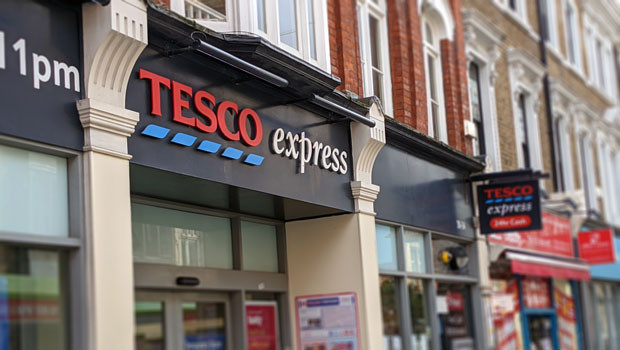London close: Stocks mixed as investors await Fed minutes

London stocks were in a mixed state at the close on Wednesday after a middling session, as investors closed their wallets ahead of the release of latest Federal Reserve minutes.
The FTSE 100 ended the session up 0.16% at 7,516.87, while the FTSE 250 was off 0.53% at 23,771.18.
Sterling was also struggling for direction, last trading up 0.29% on the dollar at $1.3569, while it weakened 0.1% against the euro to €1.1976.
“For once having a small tech sector is proving to be a good thing for the FTSE 100, meaning it has been able to escape the further losses that have plagued growth stocks of late due to the rise in bond yields, though following its drubbing yesterday Ocado has managed a decent bounce,” said IG chief market analyst Chris Beauchamp.
“The continued outperformance of sectors such as mining, banks and oil points towards a resurgence of the ‘rebound trade’ for those stocks poised to benefit from an improving global economy and the expected rise in yields and interest rates around the globe - a theme supported by today’s solid ADP report, which itself has prepared investors for a decent NFP number on Friday.”
In retail sector news, UK supermarkets saw sales over Christmas reach their highest level since March 2020, with Tesco emerging as the main beneficiary.
Despite soaring prices on the back of supply-chain constraints and labour shortages, Britons still spent £11.7bn in supermarkets in December, with own-brand sparkling wine and crisps in high demand, according to market research firm Kantar.
Grocery sales totalled £31.7bn in the 12 weeks to 16 December, down 3% on 2020 but 8% higher than pre-pandemic figures, while grocery inflation hit 3.5% last month, adding £15 onto the bill of the average shopper.
“Shoppers clearly trusted that supermarkets shelves would remain well stocked and they didn’t feel the need to rush out much earlier to get their favourite festive treats,” said Fraser McKevitt, Kantar’s head of retail and consumer insight.
“We can really see just how much spending accelerated in December compared with earlier in the year by looking at the average trend during March to November when sales were down by 2.5% against 2020.”
On the continent, a survey released earlier showed economic growth in the eurozone easing to a nine-month low in December as Covid took its toll again.
IHS Markit’s final eurozone composite output index fell to 53.3 from 55.4 in November, and from a flash estimate of 53.4.
The final services business activity index printed at 53.1 in December, down from 55.9 the month before and a flash reading of 53.3.
“The accelerated expansion in output we saw in November unfortunately turned out to be brief,” said Joe Hayes, senior economist at IHS Markit.
“Amid a resurgence of Covid-19 infections across the euro area, growth slowed to the weakest since March in December.
“In Germany, where measures to combat Covid-19 have been more stringent than other monitored euro area countries, levels of economic activity broadly stagnated in December.”
Stateside, the latest data from ADP showed private sector employment in the US growing more than expected in December.
Employment rose by 807,000 from November, coming in ahead of expectations for a 400,000 jump, while the November total of jobs added was revised to 505,000 from 534,000.
Small businesses with fewer than 50 employees added 204,000 jobs, while medium businesses with between 50 and 499 employees added 214,000.
Large businesses with more than 500 employees created a further 389,000.
“December’s job market strengthened as the fallout from the Delta variant faded and Omicron’s impact had yet to be seen,” said Nela Richardson, chief economist at ADP.
“Job gains were broad-based, as goods producers added the strongest reading of the year, while service providers dominated growth.
“December’s job growth brought the fourth quarter average to 625,000, surpassing the 514,000 average for the year.”
In London’s equity markets, broker notes provided a boost with online supermarket Ocado rising 3.18% after an upgrade to ‘buy’ from ‘hold’ at Berenberg.
InterContinental Hotels was 0.68% higher after an upgrade to ‘buy’ from ‘neutral’ at UBS.
London Stock Exchange was lifted 1.7% by an upgrade to ‘buy’ from ‘neutral’ at Citi, although plumbing and heating products distributor Ferguson reversed earlier gains to close down 0.11% despite an upgrade to ‘buy’ from ‘hold’ at Berenberg.
Elsewhere, Cineworld surged 18.02%, with traders pointing to relief that no further restrictions had been announced for England this week.
Retailer Marks and Spencer was also in the black by 4.7%, with a possible boost coming from the retail figures from Kantar.
On the downside, gambling software maker Playtech was 0.27% weaker after it and potential bidder JKO asked the UK Takeover Panel for more time for the latter to declare its intentions on any takeover offer.
Playtech said it was also postponing court and shareholder meetings relating to the offer by Aristocrat Leisure Limited, previously scheduled for 12 January to 2 February.
Outsourcer Capita was in the red by 1.25% after the Competition and Markets Authority served an initial enforcement order over the planned £62m sale of its emergency services business to NEC Software Solutions.